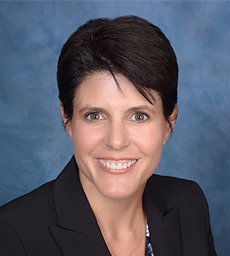From navigating early mediation to modifying initial child custody rulings, an experienced attorney ensures that you have informed support throughout every step of the process. Here are answers to some of the most common child custody questions:
What is child custody?
Child custody refers to an agreement between parents as to who will have primary responsibility for the children. It may apply in situations of divorce, seperation, health issues, or other legal concerns where the parents are not domiciled together. Child custody is generally based on the best interest of the child and may change with respect to relocation, health issues, criminal charges, or other changes within parental parties. Child custody includes considerations for both physical and legal custody.
What are the various forms of child custody?
The state of California defines child custody in multiple formats. Depending on your situation the court may make distinct rulings as it pertains to the different types of child custody described below:
- Physical Custody: Physical custody refers to the child’s primary physical residence. In cases where the child primarily lives with one parent, they are deemed the “custodial parent”. Joint physical custody describes a scenario where the child spends equal or significant amounts of time with each parenting party. Physical custody determinations are subject to change based on modifications to the parents’ or child’s life circumstances.
- Legal Custody: Legal custody refers to the rights to make decisions about a child’s schooling, religion, health, and medical care. Legal custody may be granted on a sole or joint basis. Legal custody determinations may be changed at various stages in the child’s life.
- Sole Custody and Joint Custody: Physical and/or legal custody that is granted to one parenting party may be referred to as “sole'' custody. Sole custody may be recommended in cases of abuse, criminal activity, or drug and alcohol issues. Joint custody refers to an agreement where both parenting parties share physical and/or legal custody. Joint custody is often recommended in the case that both parties are able to provide care for the child.
What are common child custody rules in San Diego County?
In San Diego County, every child custody case begins with a mandatory mediation at Family Court Services 6-8 weeks prior to the court hearing. In general, the state of California recommends joint custody when both parenting parties are able to provide care for the child. In San Diego County, the court will ultimately decide if legal and/or physical joint custody is appropriate, or if sole custody is within the best interest of the child. This ruling is subject to change over time as factors evolve with each parenting party. Our Resources page contains valuable information on:
- San Diego Superior Court
- Child Custody Recommending Counseling
- The Department of Child Support Services
- Child & Spousal Support Calculator
- The Judicial Branch of the California Court system
How is child custody handled when one or both parents move?
Child custody in the case of one or both parents moving is a complex field. An attorney must review the current custodial arrangement and analyze how the move will conflict with this ruling. The attorney may conclude if the party has a “presumptive right to move”. In the case that one party opposes the other party’s move, there may be additional court hearings to discuss how the move will affect the child and what additional custody determinations should be made. In joint custody cases, the court will determine what custodial arrangement will be best for the child with the assumption that the moving parent will do so even if the court does not allow them to take the child with them. These complex cases often require months of planning and negotiation. Once the initial proposal to move is made, the court will set a mediation and hearing date. Before your formal court arrangement, your attorney will help you plan and file the request for order (RFO).
Are there special child custody considerations for military families?
Yes. Each child custody case is based on the physical location, availability, and income of the parenting parties. Faced with frequent moves and deployments, military family families may need specialized support from a child custody attorney.
Can a child custody ruling be modified?
Yes. After the initial ruling, one or both parenting parties may wish to modify physical or legal custody agreements. Child custody is often modified due to changes such as:
- Relocation of one or both parties
- Changes in one or both party’s ability to care for the child
- Changes to employment and/or income
- Legal and/or criminal status of either parenting party
- Domestic violence or criminal charges
- Other unique circumstances
An attorney will provide assistance in any of these cases by helping to determine the correct legal course of action, as well as the evidence required to support your case.
Is child custody modified in cases of legal or criminal issues?
In some cases the initial custody agreement may be temporarily or permanently modified based on new or on-going legal issues. There are special considerations when it comes to cases of drug or alcohol abuse, domestic violence, and criminal violence. The courts will prioritize the well-being of the child in each of these instances. Depending upon the details of the situation the court may require multiple hearings to establish a new custody ruling. An experienced child custody attorney can help you navigate this complex process.
What does a child custody lawyer do?
Your attorney may provide legal counsel, representation, and consultation on all family law issues. In addition, they will offer insight on child custody rulings under local jurisdictions. Yvonne Rizzo works in all areas of family law including divorce, child custody, division of property, child support, and additional family law matters.
About Yvonne Rizzo
Yvonne Rizzo Esq is a child custody lawyer in San Diego, California. She previously worked as the Deputy City Attorney in the Domestic Violence Unit for San Diego County, as well as a civil litigator in Los Angeles County, Yvonne Rizzo’s qualifications include:
- State Bar of California
- United States District Court for the Central District of California
- United States District Court for the Southern District of California
- United States District Court for the Northern District of California
- United States District Court for the Eastern District of California
- State Bar of New York
To discuss your case, book a consultation with our team.




